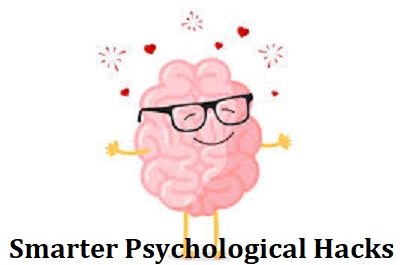Postpartum Depression
Postpartum depression (PPD) is a complicated combination of behavioral, emotional, and, physical changes in women after giving birth. It is a serious condition that can interfere with a woman’s ability to care for herself and her baby. Symptoms can include feeling sad or hopeless, loss of interest in activities that used to be enjoyable, difficulty bonding with the baby, difficulty sleeping, and feelings of worthlessness or guilt.
The DSM-5 defines PPD as a type of serious depression that starts 4 weeks or less after delivery. The intensity of the depression as well as the amount of time between delivery and onset are used to diagnose postpartum depression. Up to 15% of persons are impacted.
Signs and Symptoms of Postpartum Depression
Each person will experience different warning signs, but these could include:
- A loss of interest in things you used to enjoy,
- Eat more or less, than you generally do
- Anxiety
- Racing, scary thoughts
- Feeling guilty or worthless
- Excessive irritability, anger, or agitation—mood swings
- Sadness, crying hysterically for very long periods of time
- Fear of not being a good mother
- Fear of being left alone with the baby
- Misery
- sleeping problems
- lack of interest in the baby, family, and friends
- Difficulty concentrating, remembering details, or making decisions
- Thoughts about hurting yourself or the baby.
You might need to receive care if these warning signs or symptoms persist for more than two weeks. With the right care, healing is achievable regardless of how severe your symptoms are.
Causes and Risk Factors of Postpartum depression
According to experts, there are numerous causes for postpartum depression, and each person may have a distinct cause. Following are some factors that may increase the risk of postpartum depression:
- A history of depression before pregnancy, or during pregnancy
- Age factor
- Uncertainty regarding the pregnancy
- Children number
- Family history of mood disorders
- Extreme stress
- Baby with special needs
- Having twins or triplets
- Having a history of depression or premenstrual dysphoric disorder (PMDD)
- Limited social support
- Living alone
- Marital conflict
Although there isn’t a single cause of postpartum depression, various mental and emotional conditions could be a factor:
Hormones. The sharp decline in estrogen and progesterone following childbirth could be a factor. Your thyroid glands’ other hormone production may also experience a significant decline, leaving you feeling tired out, restless, and gloomy.
Lack of sleep. When anyone feels restless and deprived of sleep, could find it difficult to deal with even simple issues.
Anxiety. May be mother feels anxiety about caring for a newborn.
Self-image. May the mother feel less attractive, struggle with a sense of identity, or feel lost in control over her life. Any of these issues can contribute to postpartum depression.
Types of postpartum depression
Postpartum mood disorders come in three main types:
Postpartum baby blues:
Between 50% and 75% of people experience baby blues after giving birth. You will cry for extended periods of time frequently and for no apparent reason if you experience the baby blues, along with unhappiness and anxiousness. One to four days after delivery is when the condition typically manifests itself in the first week. Despite the unpleasantness of the situation, it normally goes away on its own after two weeks. The best course of action is to approach friends, family, or your spouse for support and assistance.
Postpartum depression:
About 1 in 7 new parents experience postpartum depression, a much more dangerous disorder than the baby blues. If you’ve previously experienced postpartum depression, your risk rises to 30% with each pregnancy. Along with mood swings, incessant crying, impatience, and exhaustion, you could also feel guilty, anxious, and incapable of taking care of yourself or your child. Mild to severe symptoms may start to show up a week after delivery or gradually, even up to a year later. Despite the fact that symptoms can continue for several months, psychotherapy or antidepressants are very effective forms of treatment.
Postpartum psychosis:
A very severe form of postpartum depression that necessitates immediate medical intervention is postpartum psychosis. Only 1 in 1,000 people after delivery is affected by this illness, making it very uncommon. The symptoms typically start soon after delivery, are severe, and linger for several weeks to months. Severe agitation, bewilderment, feelings of helplessness and shame, sleeplessness, paranoia, hallucinations or delusions, hyperactivity, quick speech, or mania are some of the symptoms. Due to the heightened risk of suicide and potential injury to the unborn child, postpartum psychosis requires rapid medical intervention. Medication, counseling, and hospitalization are frequently used as treatments.
Treatment of Postpartum Depression
Depending on the type and severity of your symptoms, postpartum depression is treated in a variety of ways. Postpartum depression can be treated with therapy, medication, or a combination of both. Therapy can help you identify and work through the thoughts and feelings that are contributing to your depression, and can provide you with coping strategies to manage your symptoms. Medication can help to regulate the chemicals in your brain that are believed to play a role in depression.
If you are struggling with postpartum depression and need help, please do not hesitate to reach out to a healthcare professional or a support organization for assistance. There is no shame in seeking help, and treatment can make a significant difference in your ability to manage your symptoms and enjoy your role as a mother.
Coping strategies for postpartum depression
Having a baby is challenging and parenting is full of ups and downs. You don’t have to suffer in silence if you experience depression. Your doctor can assist you in locating a treatment that is effective for you.
Here are some strategies for dealing with postpartum depression:
- Find a listener and supporter to talk to, such as a therapist, friend, or family member.
- Become a member of a new parent support group.
- Make an effort to eat healthy and schedule exercise.
- Put your own rest in the forefront.
- Meet up with friends in person or over the phone.
- Schedule time for self-care and enjoyment-driven activities, such as reading or other hobbies.
- Ask for assistance with domestic tasks or errands.





Thank you for your post. I really enjoyed reading it, especially because it addressed my issue. It helped me a lot and I hope it will also help others.
Thank you dear
Your articles are extremely helpful to me. Please provide more information!
I want to thank you for your assistance and this post. It’s been great.
How can I find out more about it?
Thank you for writing this article. I appreciate the subject too.
Thank you for your articles. They are very helpful to me. Can you help me with something?
As I web site possessor I believe the content material here is rattling excellent , appreciate it for your efforts. You should keep it up forever! Good Luck.